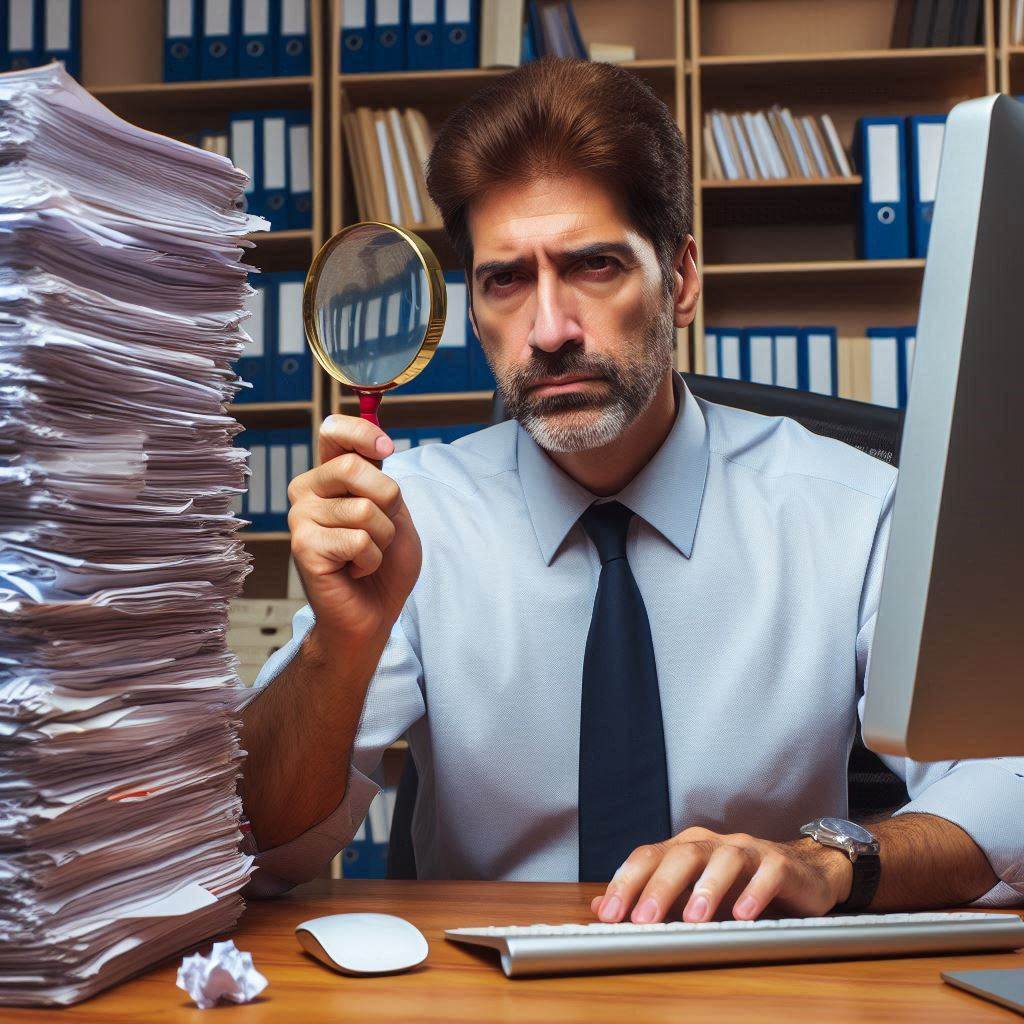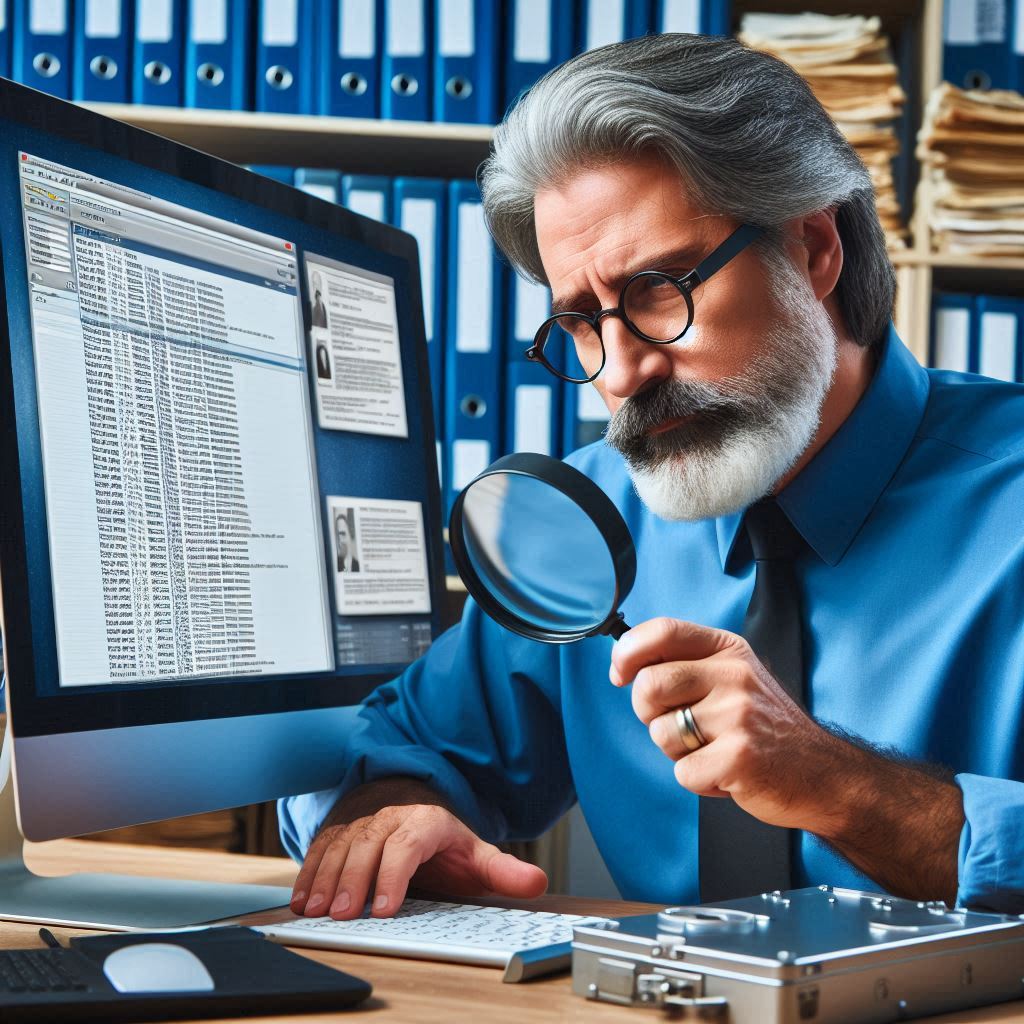Introduction
E-discovery experts start their day by reviewing case requirements and planning data collection strategies.
They analyze the scope of data needed and determine the most effective methods for gathering electronic evidence.
This evidence often includes emails, documents, spreadsheets, and other digital records that are critical to the case.
Once a collection plan is established, experts use specialized e-discovery tools and software to extract data from various sources, such as servers, cloud storage, and local devices.
They ensure that the data collection process adheres to legal standards and maintains the integrity of the evidence.
Proper handling and documentation are crucial to avoid any issues during the litigation process.
After collecting the data, e-discovery experts organize and process it.
They convert raw data into a format that is suitable for review and analysis.
This involves indexing, de-duplicating, and categorizing the information to make it accessible and manageable.
The goal is to create a comprehensive dataset that supports legal teams in their investigations.
E-discovery experts also collaborate closely with legal teams.
They provide updates on the progress of data collection and processing, offering insights and answering questions about the data’s relevance and implications.
They may assist in developing strategies for presenting evidence and ensuring that all relevant information is available for legal proceedings.
Understanding the Legal Process
Familiarizing Themselves with the Legal Case They Are Working On
E-discovery experts start each day by thoroughly familiarizing themselves with the legal case they are working on.
They review case files and legal briefs to understand the context and scope.
Specialists work closely with attorneys to grasp the case’s specific needs and objectives.
This understanding helps them identify relevant electronic data and plan their collection strategies effectively.
By staying informed about the case’s progress and changes, they ensure that their work aligns with legal strategies and requirements.
Understanding the Legal Requirements for Collecting and Processing Electronic Data
E-discovery experts must have a deep understanding of the legal requirements for collecting and processing electronic data.
They stay updated on laws and regulations governing digital evidence, such as data privacy and protection laws.
Specialists must ensure that their data collection methods comply with legal standards to maintain evidence admissibility.
They are responsible for understanding both federal and state regulations that affect electronic evidence handling.
Their knowledge ensures that all processes follow legal procedures, minimizing the risk of evidence being challenged or excluded in court.
Ensuring Compliance with All Legal Regulations and Guidelines
Ensuring compliance with all legal regulations and guidelines is a critical responsibility for e-discovery experts.
They follow established protocols to adhere to legal and ethical standards during data collection and analysis.
Specialists implement security measures to protect data and prevent unauthorized access or tampering.
They maintain detailed documentation of their processes to provide an audit trail if needed.
Compliance involves regular reviews of procedures and practices to ensure alignment with current regulations.
Experts work closely with legal teams to address any compliance issues and make necessary adjustments.
Daily tasks include verifying that all data handling procedures meet legal requirements and industry standards.
Specialists also engage in ongoing training to keep abreast of changes in legal regulations.
Their role is crucial in ensuring that all electronic evidence is processed in a legally compliant manner, safeguarding its integrity and usability in court.
Therefore, e-discovery experts must familiarize themselves with the legal case they are working on, understand the legal requirements for data handling, and ensure compliance with regulations.
Their attention to detail and adherence to legal standards are essential for managing electronic evidence effectively and supporting successful legal outcomes.
Read: How Patent Agents Assist in Protecting Your Inventions
Data Collection and Preservation
Identifying sources of electronic data relevant to the case
E-discovery experts begin their day by identifying sources of electronic data pertinent to the case.
They analyze the scope of the case to determine where relevant data may reside.
This involves locating data across various platforms, such as emails, social media, and cloud storage.
Specialists must work closely with legal teams to understand the specific data needs of the case.
Identifying these sources requires thorough knowledge of the case details and the digital environment of the involved parties.
They also use specialized tools to locate and catalog potential data sources.
Implementing Processes for Collecting and Preserving Electronic Evidence
Once relevant data sources are identified, e-discovery experts implement processes for collecting and preserving electronic evidence.
They ensure that data is collected in a manner that maintains its integrity and is legally defensible.
This involves using forensic techniques to capture data without altering or damaging it.
Specialists follow established protocols to preserve evidence, including creating exact copies of digital data.
They employ secure storage solutions to protect evidence from unauthorized access or tampering.
Proper documentation of the collection process is crucial to ensure that evidence can be reliably used in legal proceedings.
Ensuring the Integrity and Authenticity of the Collected Data
Maintaining the integrity and authenticity of collected data is a fundamental responsibility for e-discovery experts.
They use hashing algorithms to verify that the data remains unaltered throughout the collection and analysis process.
Specialists must document every step taken to handle and store the evidence, providing an audit trail for verification.
They also implement security measures to protect the data from breaches or tampering.
Ensuring data integrity involves regular checks and validations to confirm that the evidence is accurate and reliable.
Any discrepancies or potential issues must be addressed promptly to preserve the evidence’s validity in court.
Daily responsibilities also include reviewing the data handling procedures to ensure compliance with legal standards and best practices.
Specialists work closely with legal teams to address any concerns related to data integrity and to make adjustments as needed.
Their role is crucial in ensuring that electronic evidence is both credible and usable for legal purposes.
In general, e-discovery experts are responsible for identifying sources of electronic data, implementing processes for evidence collection, and ensuring the integrity of the collected data.
Their meticulous approach ensures that electronic evidence is accurately preserved and remains credible throughout legal proceedings.
Read: Typical Salary Range for Patent Agents in America
Data Processing and Review
E-discovery experts handle complex tasks involving large volumes of electronic data.
Their role is pivotal in ensuring that digital evidence supports legal proceedings effectively.
Understanding their daily responsibilities highlights the complexity and importance of their work.
Utilizing E-Discovery Software
A significant part of an e-discovery expert’s day involves using specialized software to process data.
They start by loading vast amounts of electronic information into e-discovery platforms.
These platforms help manage and organize data efficiently.
Experts utilize the software’s tools to index, de-duplicate, and categorize files.
This organization allows for easier access and retrieval of relevant information.
They configure filters and search parameters to refine the data collection process.
The goal is to streamline the data handling and make it manageable for review.
Reviewing Documents and Emails
Once the data is processed, experts review documents and emails for relevance.
They carefully examine each piece of data to identify content pertinent to the case.
This review involves assessing the context and content of each document.
Experts look for evidence that supports or refutes claims made in the case.
They tag and categorize relevant documents to facilitate further analysis.
The process is meticulous to ensure that no critical information is overlooked.
Attention to detail is essential to maintain the integrity of the evidence.
Collaborating with Legal Teams
Collaboration with legal teams is another crucial responsibility.
E-discovery experts work closely with attorneys and paralegals to understand their needs.
They provide updates on the status of data processing and document review.
Experts assist in identifying key pieces of evidence based on legal team requirements.
They offer insights into the data’s relevance and potential impact on the case.
This collaboration ensures that the legal team has all necessary information for their strategy.
Effective communication between experts and legal professionals is vital for a successful case outcome.
Challenges and Best Practices
E-discovery experts face challenges such as handling data from multiple sources and dealing with technical issues.
They troubleshoot software problems and ensure data integrity throughout the process.
Staying updated on the latest technology and best practices is crucial.
Regular training and professional development help them adapt to evolving e-discovery tools and methods.
Generally, e-discovery experts play a critical role in managing electronic evidence.
Their daily responsibilities include using specialized software to process data, reviewing documents and emails for relevance, and collaborating with legal teams.
Their work ensures that digital evidence is organized and accessible, supporting successful legal outcomes.
Read: Patent Agent Certification: Everything You Need to Know
Transform Your Career Today
Unlock a personalized career strategy that drives real results. Get tailored advice and a roadmap designed just for you.
Start Now
Managing Metadata and Chain of Custody
When it comes to the daily responsibilities of e-discovery experts, managing metadata and chain of custody are crucial aspects of their work.
Let’s delve into what these responsibilities entail
Maintaining Accurate Metadata
One of the key tasks for e-discovery experts is to maintain accurate metadata for every piece of electronic data collected during the discovery process.
Metadata provides important information about the data, such as when it was created, who accessed it, and any modifications made to it. This information is essential for establishing the authenticity and reliability of the evidence.
By meticulously documenting and preserving metadata, e-discovery experts can ensure that the data is admissible in court and can withstand scrutiny from opposing counsel.
Failure to properly maintain metadata can compromise the integrity of the evidence and lead to potential legal challenges.
Establishing a Chain of Custody
Another critical responsibility of e-discovery experts is to establish a chain of custody to track the handling of evidence throughout the discovery process.
A chain of custody is a documented trail that shows who had custody of the evidence, when it was in their possession, and what actions were taken with it.
By maintaining a clear and detailed chain of custody, e-discovery experts can demonstrate that the evidence has not been tampered with or altered in any way.
This information is essential for establishing the authenticity and reliability of the evidence in court proceedings.
Ensuring Security and Confidentiality
Protecting the security and confidentiality of all data is a top priority for e-discovery experts.
They must implement robust security measures to prevent unauthorized access, tampering, or disclosure of sensitive information during the discovery process.
From encryption protocols to secure data storage solutions, e-discovery experts employ various techniques to safeguard the integrity of the data.
By ensuring strict confidentiality measures are in place, they can uphold the privacy rights of individuals and protect the sensitive information involved in legal proceedings.
In essence, managing metadata and chain of custody are essential daily responsibilities for e-discovery experts.
By diligently maintaining accurate metadata, establishing a clear chain of custody, and ensuring the security and confidentiality of all data, these experts play a crucial role in upholding the integrity of the discovery process and ensuring a fair and transparent legal system.
Read: Steps to Become a Registered Patent Agent in the USA
Providing Expert Testimony
Preparing Reports and Summaries of Electronic Evidence for Court
E-discovery experts start their day by preparing detailed reports and summaries of electronic evidence.
They meticulously review and organize collected data to present it clearly.
These reports include crucial information about the data’s relevance, context, and impact on the case.
Specialists ensure that summaries are accurate, comprehensive, and easy to understand for the court.
They must follow legal standards for presenting electronic evidence to maintain its admissibility.
Their work often involves creating visual aids or charts to illustrate key points effectively.
The process requires careful attention to detail and adherence to legal requirements.
Specialists often collaborate with legal teams to ensure that the reports align with the case strategy.
They must also be prepared to update reports based on new evidence or changes in the case.
Preparing these documents is a critical responsibility, as they play a key role in supporting the legal arguments in court.
Presenting Findings and Conclusions as an Expert Witness
E-discovery experts frequently serve as expert witnesses in court.
They present their findings and conclusions to judges, juries, and attorneys.
As expert witnesses, they must explain complex technical details in a clear and understandable manner.
This involves providing testimony on the methods used to collect and analyze electronic evidence.
Specialists need strong communication skills to articulate their findings effectively.
They must respond to cross-examination and clarify any points of contention.
Their testimony often includes explaining how their conclusions support the legal arguments of the case.
Presenting as an expert witness requires confidence, thorough preparation, and the ability to handle challenging questions.
Assisting Legal Teams in Understanding and Interpreting Technical Aspects of E-Discovery
E-discovery experts also assist legal teams in understanding and interpreting the technical aspects of their work.
They explain the significance of electronic evidence and how it fits into the broader case context.
This involves translating technical jargon into layperson’s terms for attorneys and other legal professionals.
Specialists help legal teams comprehend the methods and tools used for data collection and analysis.
They provide insights into the implications of the evidence and its impact on the case strategy.
By clarifying technical aspects, e-discovery experts enable legal teams to make informed decisions and build stronger cases.
Daily interactions with legal teams include answering questions and providing ongoing support.
Specialists may also offer training or guidance on using e-discovery tools and interpreting technical reports.
Their role is crucial in bridging the gap between technical and legal perspectives, ensuring that electronic evidence is effectively integrated into the legal process.
In review, e-discovery experts play a vital role in preparing reports and summaries for court, presenting findings as expert witnesses, and assisting legal teams with technical aspects.
Their responsibilities ensure that electronic evidence is accurately represented and effectively used in legal proceedings.
Staying Current with Industry Trends
Continuing Education and Training in E-Discovery Technology and Best Practices
E-discovery experts must prioritize continuing education and training in their field.
They regularly update their knowledge on the latest e-discovery technologies.
This includes learning about new software tools and platforms used for data management and analysis.
Staying current with best practices ensures that they use the most effective methods for handling electronic evidence.
Daily responsibilities often involve attending training sessions or webinars on emerging technologies.
Experts may also participate in professional courses to deepen their expertise.
Continuous learning helps them adapt to technological advancements and maintain a competitive edge.
Regular certification renewals and additional qualifications further enhance their skills and credibility in the field.
Keeping Abreast of Changes in Laws and Regulations Related to E-Discovery
E-discovery experts need to stay informed about changes in laws and regulations.
Legal requirements for electronic evidence are constantly evolving, and experts must adapt to these changes.
This involves reviewing updates from legal bodies and regulatory agencies that impact e-discovery practices.
Transform Your Career Today
Unlock a personalized career strategy that drives real results. Get tailored advice and a roadmap designed just for you.
Start NowExperts regularly read legal journals and attend industry conferences to stay updated.
They must understand new regulations that affect how electronic evidence is handled and preserved.
Compliance with these regulations is crucial for maintaining the admissibility of evidence and avoiding legal pitfalls.
Daily tasks may include reviewing legal briefs or case law that impacts e-discovery.
Experts must also ensure that their practices align with current legal standards and industry guidelines.
Staying informed about regulatory changes helps them provide accurate advice and support to legal teams.
Networking with Other E-Discovery Professionals to Share Knowledge and Expertise
Networking with other e-discovery professionals is essential for career development and knowledge sharing.
Experts attend industry events and join professional organizations to connect with peers.
These interactions provide opportunities to discuss challenges, solutions, and advancements in the field.
Daily activities might include participating in online forums or attending local e-discovery meetups.
Sharing insights with colleagues helps experts stay updated on industry trends and best practices.
Collaborating with other professionals can lead to new ideas and innovative approaches to handling electronic evidence.
Building a strong professional network also opens doors to career opportunities and partnerships.
Networking can lead to collaborations on projects or referrals for new clients.
Engaging with the e-discovery community fosters professional growth and enhances expertise in the field.
Essentially, e-discovery experts have daily responsibilities that include continuing education in technology and best practices, staying updated on legal and regulatory changes, and networking with other professionals.
These activities ensure they remain knowledgeable and effective in their roles, adapting to new developments and maintaining high standards in e-discovery practices.
Conclusion
In this post, we examined the daily responsibilities of e-discovery experts, who play a vital role in managing electronic evidence for legal proceedings.
Their tasks include collecting, processing, and analyzing large volumes of digital data.
These experts handle evidence securely and accurately, maintaining its integrity throughout the litigation process.
E-discovery experts meticulously review and organize data to make it accessible and useful for legal teams.
They work on identifying relevant information, ensuring that it meets legal standards, and preparing it for presentation in court.
Their role involves using specialized software and tools to streamline data processing and analysis, which is critical for building a strong case.
The importance of e-discovery in legal proceedings cannot be overstated.
Electronic evidence often forms the backbone of modern litigation, influencing the outcome of cases significantly.
Accurate handling and effective management of this evidence are crucial for developing robust legal arguments and strategies.
Hiring skilled and experienced e-discovery experts is essential for successful legal outcomes.
Their expertise ensures that evidence is not only managed correctly but also analyzed in a way that supports the legal team’s objectives.




